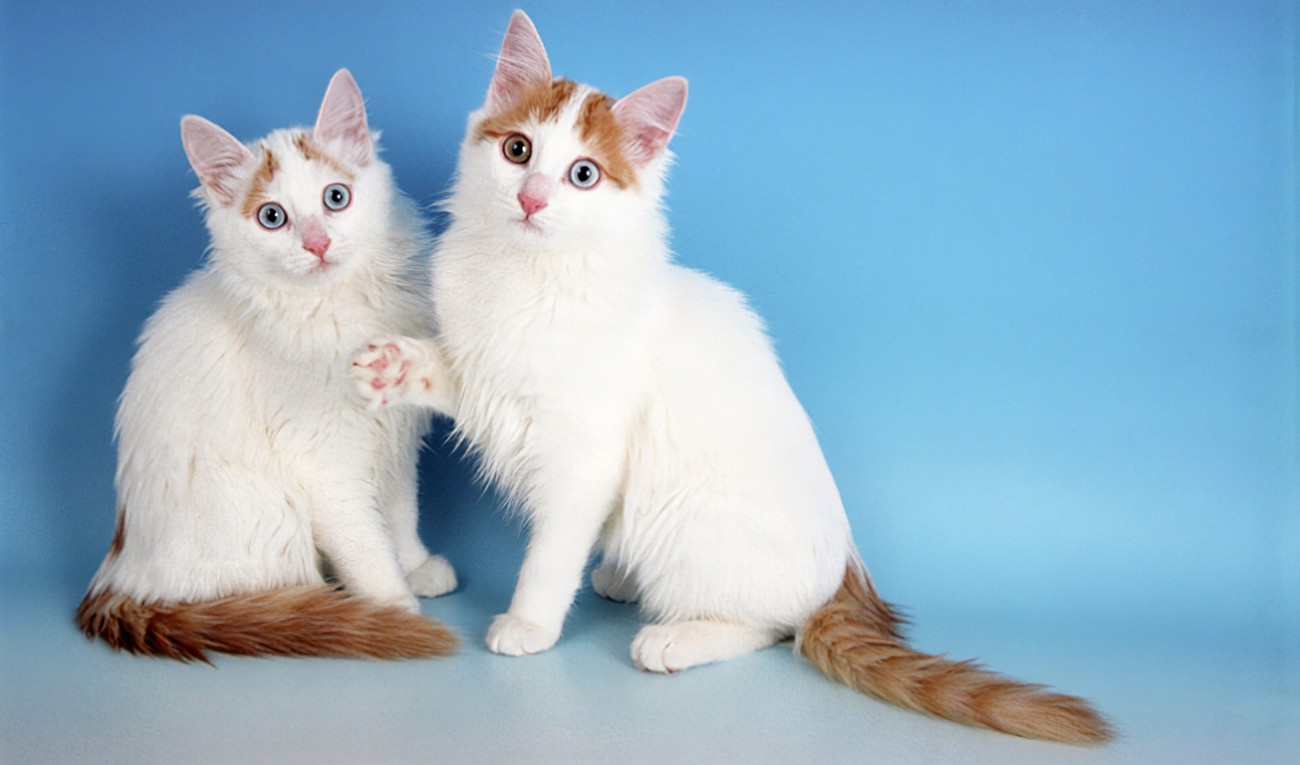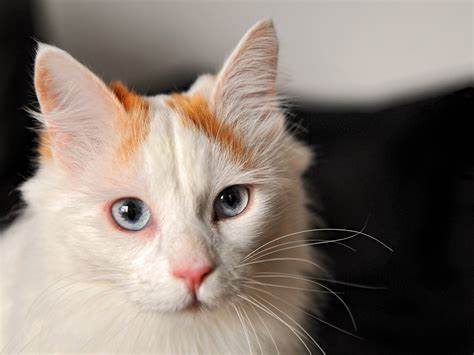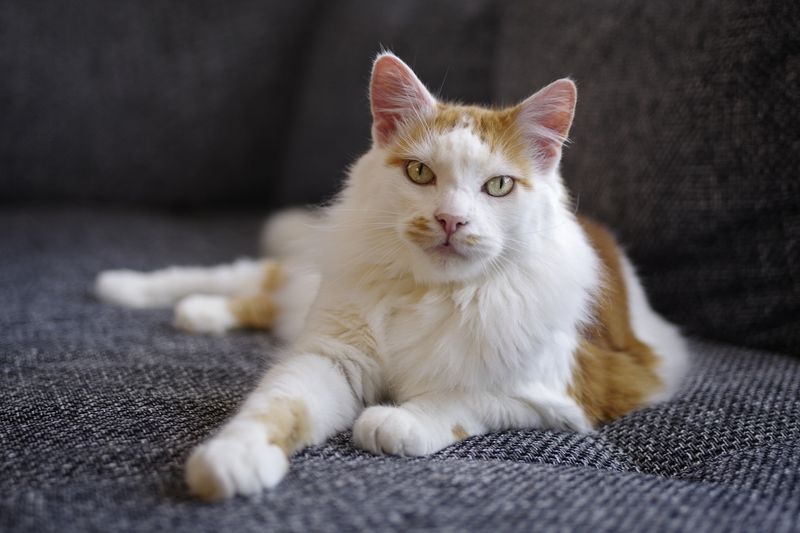Turkish Van: The Water-Loving and Playful Swimmer Cat

History of the Turkish Van
The Turkish Van is an ancient and rare breed, originating from the Lake Van region in Turkey. This breed is known for its distinctive white coat with colored markings on the head and tail and its unique love for water.
Turkish Vans have existed for centuries, with evidence of their presence in ancient Armenian and Middle Eastern art. In the 1950s, British travelers Laura Lushington and Sonia Halliday helped introduce the breed to Europe, where it gained recognition from The International Cat Association (TICA) and the Cat Fanciers’ Association (CFA).
Popularity of the Turkish Van
Due to its rare water-loving nature and unique markings, the Turkish Van is highly prized in Turkey and has gained popularity in Europe and North America. However, it remains a rare breed outside its native region.
Physical Traits of the Turkish Van
The Turkish Van is a large, muscular cat with a semi-long coat and distinctive coloring.
• Coat: Semi-long, soft, and cashmere-like, with a water-resistant quality.
• Colors:
o Predominantly white with colored markings on the head and tail.
o Common point colors include red, cream, black, blue, tabby, and tortoiseshell.
• Size: Medium to large, weighing between 10 to 20 pounds.
• Head & Expression: Broad head with large, expressive almond-shaped blue, amber, or odd-colored eyes.
• Ears: Large, slightly rounded at the tips, set high on the head.
• Tail: Long, fluffy, and fully colored, often matching the markings on the head.
• Body: Strong, muscular, and built for swimming and agility.
Behavioral Traits of the Turkish Van Cat
The Turkish Van is known for its playful, intelligent, and independent nature, making it an ideal companion for active households.
• Loves Water: Unlike most cats, the Turkish Van enjoys swimming, playing in water, and dipping its paws in bowls.
• Highly Playful and Energetic: Needs plenty of space to jump, run, and explore.
• Affectionate but Independent: Loves attention but also enjoys having its own space.
• Very Intelligent: Can learn tricks, open doors, and navigate complex environments.
• Strong Bond with Owners: Loyal to its family but may not be a typical lap cat.

Why Choose a Turkish Van Cat?
For those looking for a rare, intelligent, and highly active feline companion, the Turkish Van is an excellent choice.
• Unique Water-Loving Behavior: One of the few cat breeds that enjoys swimming.
• Perfect for Active Homes: Loves playtime, climbing, and interactive activities.
• Beautiful and Distinctive Look: The white coat with colored markings makes it visually stunning.
• Loyal and Smart: Forms deep bonds with its family and can be trained easily.
• Adaptable and Social: Gets along well with other pets and children.
Caring for Your Turkish Van Cat
The Turkish Van requires regular grooming, mental stimulation, and plenty of physical activity to stay happy and healthy.
• Grooming:
o Weekly brushing helps maintain the semi-long coat and reduces shedding.
o Bathing is rarely needed, as their coat is naturally water-resistant.
• Exercise: Needs daily play sessions with climbing structures and interactive toys.
• Mental Stimulation: Enjoys puzzle toys, games, and learning tricks.
• Nutrition: A high-protein diet supports their muscular build and energy levels.
• Companionship: Prefers a home with engaging activities and social interaction.
Health Considerations
The Turkish Van is generally a healthy breed, but some concerns include:
• Hypertrophic Cardiomyopathy (HCM): A genetic heart disease that requires regular monitoring.
• Obesity Prevention: Due to their high activity levels, maintaining a balanced diet and exercise routine is crucial.
• Deafness in White Cats: Some Turkish Vans with blue or odd-colored eyes may be partially or fully deaf.

Comparisons to Other Long-Haired Breeds
Compared to the Turkish Angora, which has a lighter, more delicate frame, the Turkish Van is larger and more muscular. Unlike the Maine Coon, which has a dense undercoat, the Turkish Van’s coat is semi-long and water-resistant.
Compared to the Ragdoll, which is known for its relaxed temperament, the Turkish Van is more active and playful.
Is the Turkish Van Right for You?
The Turkish Van is perfect for cat lovers who want an active, intelligent, and unique feline companion. If you enjoy an adventurous cat that loves water and play, the Turkish Van will be a fantastic choice.
However, if you prefer a quiet, lap-loving cat, this breed may require more engagement than expected.
Ready to Welcome a Turkish Van?
United Pet Club is here to help you find the perfect Turkish Van companion. Whether you're looking to adopt or connect with trusted breeders, we provide valuable resources to guide you every step of the way.
Explore our platform to learn more about Turkish Van Cats, their history, and how to care for them. Contact United Pet Club today to start your journey with this playful and unique feline!
